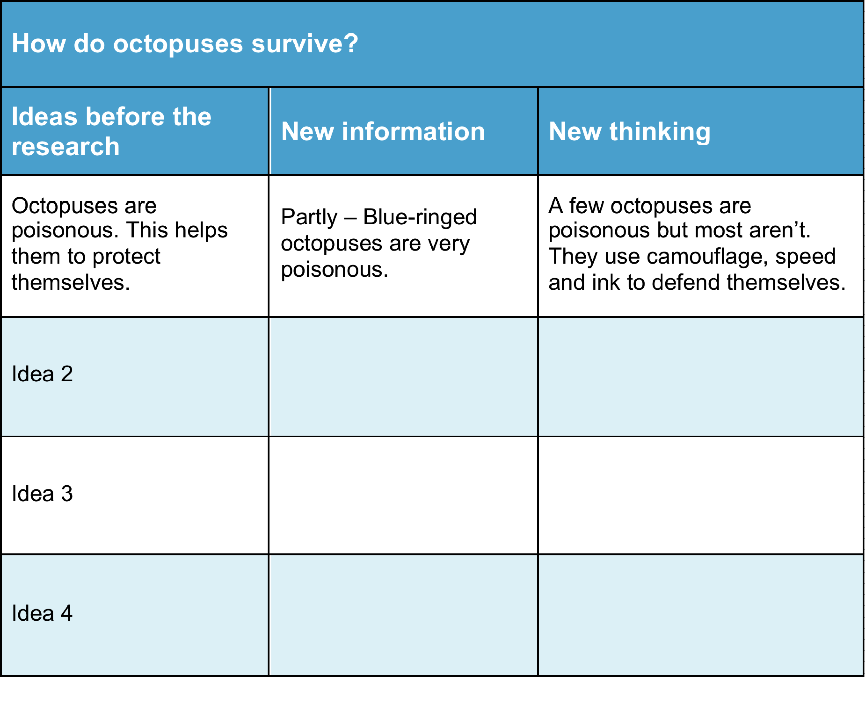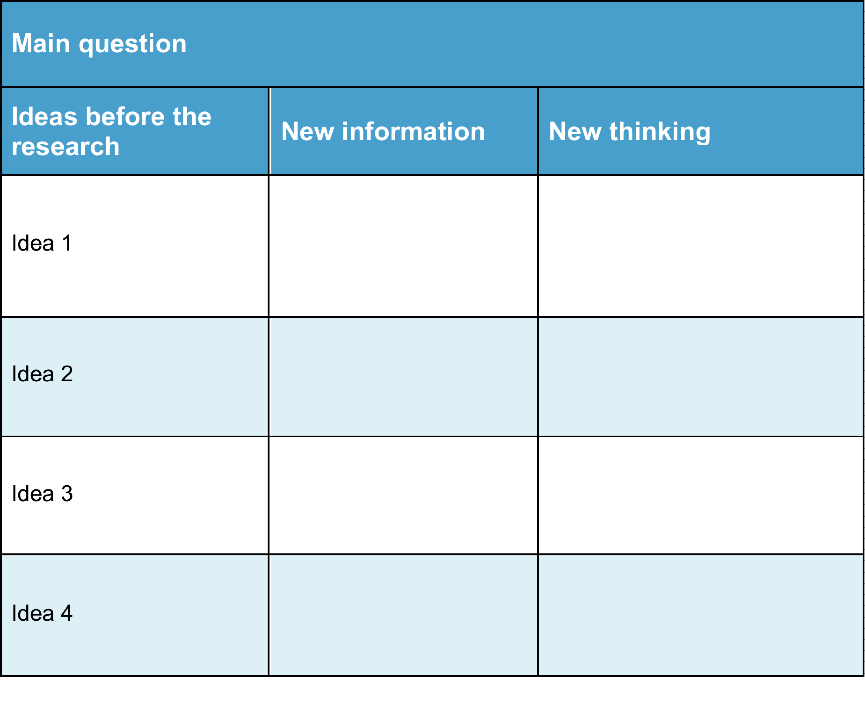Information for Teachers
Curriculum links
Australian Science Standards
BS (ACSSU73) Living things depend on each other and the environment to survive
GS (ACHASSK090) The use and management of natural resources and waste, and the different views on how to do this sustainably
SS01.4 World views recognise the dependence of living things on healthy ecosystems, and value diversity and social justice
New Zealand Science Achievement Objectives
LW: The interdependence of living things in an ecosystem
PW: The patterns associated with physical phenomena found in everyday situations involving movement, forces, electricity and magnetism, light, sound, waves and heat
Helpful websites
You may want to direct your students to websites to help with their investigations.
Some helpful places for students to research include:
David Attenborough’s BBC nature series “The Blue Planet” and “The Blue Planet 2” videos or books. This series provides an exceptional opportunity to see right to the bottom of the ocean as well as giving a lot of interesting facts about life in the ocean. Search for “Blue Planet” videos.
Students can visit the kids National Geographic website:
https://www.natgeokids.com/au/discover/geography/general-geography/ocean-facts/
They can learn some ocean facts and see a camouflaged octopus appear from seemingly nowhere. Search further in this site to find out about a range of interesting marine animals, and even some weird ones.
Students search for a particular animal using its name. They can add focus by using one or more of these terms: food, breeding, defense, habitat, behaviours, threats. For example, octopus+defense.
How to search the internet
1 Keep your request short
Fewer words will give a more accurate search.
2 Choose exactly what you want
For example: Arctic Circle Climate
3 Use quotes
Double quotes around a set of words tell the search engine to consider those exact words in that exact order without any change. For example: “Arctic Circle Climate”
4 Use the plus sign (+)
If you add a plus sign (+) between words, the internet will search for all the words. For example: migrate+birds+whales+mammal
5 Use the minus sign (–) to say what you don’t want
Use a minus sign (–) to show words you do not want to appear in your results. For example: if you search for burrowing animals and do not want mammals in your search, –mammals will exclude mammals. Note that you need to put a space before the minus sign for the word to be excluded.
6 Be very clear about what you don’t want
Part 1
Ask questions and make predictions
After reading Awesome Oceans, you may have questions about different parts of the ocean, how animals are able to live there, and how people explore and use the ocean.
List your questions
- Compare your list with questions that others have.
- Choose a question you would like to investigate.
- You can work alone, with a partner, or in a small group.
You may want to choose one or more of these questions to investigate
Q1. How are different zones of the ocean the same? How are they different?
Q2. Where in the ocean do people go? Why do they go there?
Q3. Why do we need to protect the world’s oceans? How can this be done?
Q4. Choose an animal you are interested in, for example, sea dragon, whale shark, octopus. What are its habits, behaviours, and needs? Where does it live? What, if anything, threatens the survival of this animal?
Go to Part 2 Plan and investigate →Part 2
Plan and investigate
Before you begin your investigation think of all of the things you think you know about the topic now.
As you conduct your research, write down the evidence you have found that either supports or changes your initial ideas.
Do searches in the internet or in books or talk to people who can help to find the information you are looking for.
Your teacher may suggest suitable websites for further information.
Go to Part 3 Record and analyse data →Part 3
Record and analyse data
Find a way of recording your information that will allow you to see any patterns in the data.
Make a data chart to record the information that you find.
How have your ideas changed?
What new information have you learned?
Data Chart for How do octopuses survive?
 Download Chart
Download Chart
Go to Part 4 Evaluate the information →
Part 4
Evaluate the information
1. Look over the information you have gathered and the patterns you have found.
Have your ideas changed?
What new information have you learned?
2. Search for other patterns.
3. Makes notes about what you find.
Go to Part 5 Communicate and share ideas →Part 5
Communicate and share ideas
Look over all of the information that you have gathered in your investigation.
What are the most important ideas about your topic?
Make a chart showing the most important ideas.
 Download Chart
Download Chart
← Return to menu
